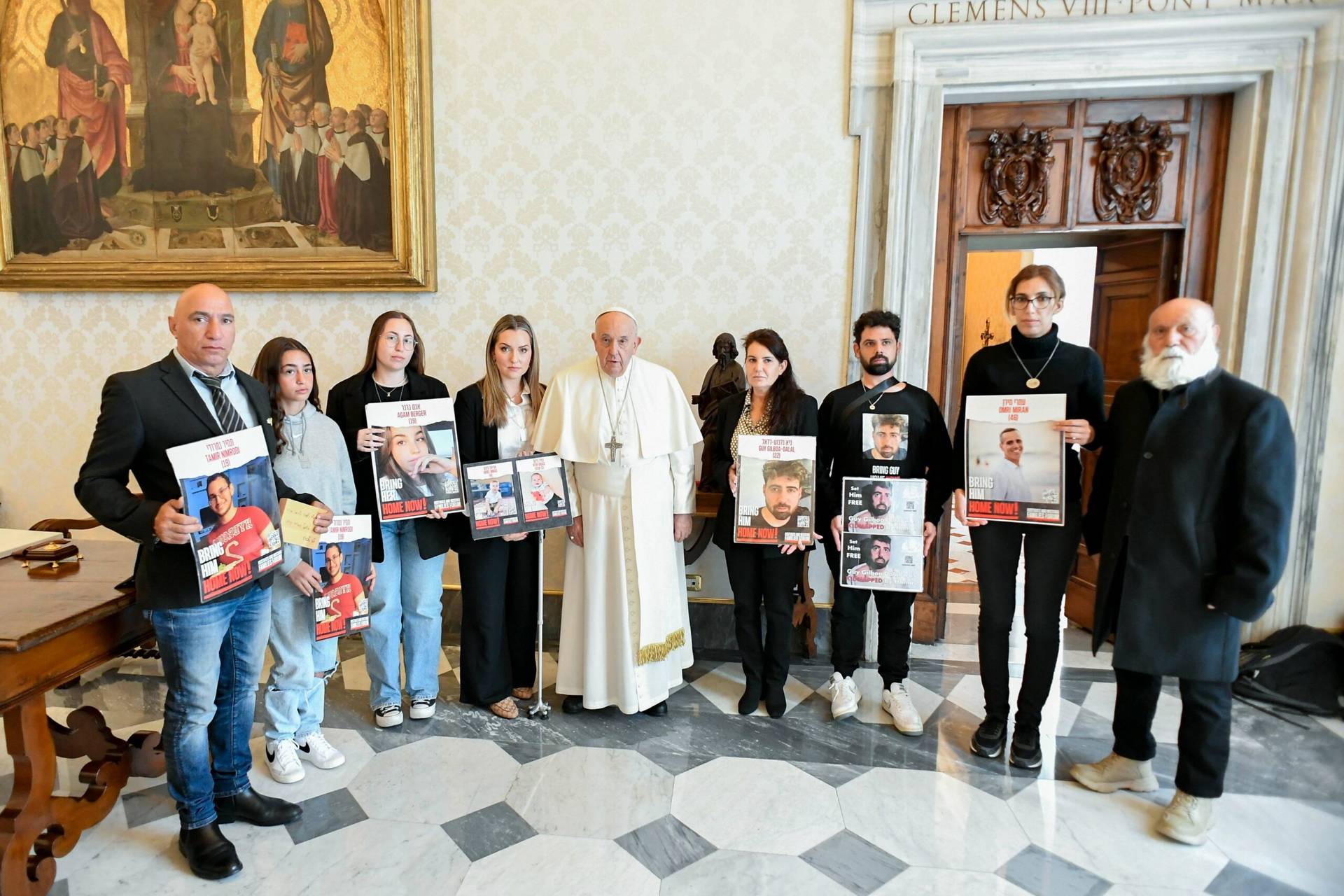The venerable Vatican newspaper L’Osservatore Romano for the first time now has a local edition, published this week in Spanish in Argentina. Even more remarkably, its editor is a Protestant biblical scholar.
The 16-page newspaper published this week with a letter of commendation signed by Francis, is identical in appearance to the weekly Spanish edition coming out of Rome. But it carries nine pages of content translated from the Roman edition — including important addresses by the pope — mixed with seven pages of stories and columns sourced in Argentina.
“Francis is Argentina and deserves to be properly known in his beloved country,” writes Marcelo Figueroa in an editorial.
Among the local contributors are Rabbi Abraham Skorka, the Pope’s longtime Jewish friend and collaborator, and an interview with Uruguayan president and trade unionist José Mugica, who was recently in Rome for the meeting of the popular movements.
“I’m not a believer, but I am a political admirer of the Catholic Church and believe that Francis’s word is vital for the region,” he tells Figueroa.
Also writing in the first edition are two theologians often considered Francis’s brains in Argentina: Father Carlos Maria Galli, a member of the International Theological Commission, and Archbishop Víctor Fernández, rector of the Catholic University in Buenos Aires, who has for many years acted as Francis’s theological adviser and drafter of his key documents.
“Many Catholics read the pope through the media and end up repeating, irritated, what they have heard on the news,” writes Fernández, who adds: “This edition will promote a direct access to the actions, gestures and texts of Francis.”
Figueroa, an evangelical radio-show host who at one time hosted televised discussions of Scripture featuring Skorka and the then-Cardinal Archbishop of Buenos Aires, remains close to Francis. He was among those accompanying the pope in early November to Sweden for the commemoration of the Reformation.
He told Crux that the first edition, distributed along with the Perfil newspaper, had a print-run of 40,000 which was quickly sold out, and that future editions would have a higher print run. Beginning in March, the newspaper will be printed weekly, with two-thirds of the content reproduced from the weekly Roman edition in Spanish.
The mission of L’Osservatore Romano was to be “a vehicle for transmitting the pope’s universal purpose, which makes it a unique journalistic endeavor,” he told Crux, adding that the contributors were not just friends of the pope’s but more importantly people “who know his thinking.”
Future contributors, he said, would not just be from Argentina and other parts of Latin America but eventually also from different parts of the world.
“They don’t need to write solely on the pope’s thinking, but rather on themes related to his mission and which stem from his universal moral influence,” he said.
L’Osservatore’s editor in Rome, Giovanni Maria Vian, writes on the cover of the Argentine edition that a national edition with the support of the local bishops was “a great new departure in the history of the Holy See’s newspaper,” which was founded in 1861.
The novelty however lies not in a local edition per se, but in integrating the Rome edition with locally sourced content.
An Argentine edition of the newspaper, with a Spanish title, El Observador Romano, was in fact published from 1951 to 1969, when L’Osservatore Romano brought out a weekly Spanish edition that made it redundant.
The other novelty, writes Vian, is in entrusting the editorship to a non-Catholic, but argues that this, too, is in itself not a major departure — first because non-Catholics are frequent contributors to the paper, second because the newspaper has a vocation to universal fraternity.
“My Protestant church identity reflects an openness and generosity on the part of Francis that I do not want to stop thanking him for from the bottom of my heart,” writes Figueroa in his editorial.
He adds: “That’s why in this edition of L’Osservatore Romano for Argentina, the spaces for reflection and opinion will be opened not just to distinguished representatives of the national Catholic Church but also to leaders of the different religious confessions and all people of goodwill who can give a local view of Francis’s influence.”
“Francis was elected when the peripheries of the orbe appeared in the heart of the urbe,” writes Galli in his article, entitled ‘The Pope from the south of the south.’ “He represents the arrival of the south in the heart of the Church, and, as the United Nations has shown, the voice of the global south in the world.”
Asked if the local, Argentine content could also shape that of the Roman edition, Figueroa pointed Crux to the December 31 issue, which features, on page five, two of the articles in the Argentine edition translated into Italian.
The periphery shaping the center, as Pope Francis — after the theologian Yves Congar — might say.













